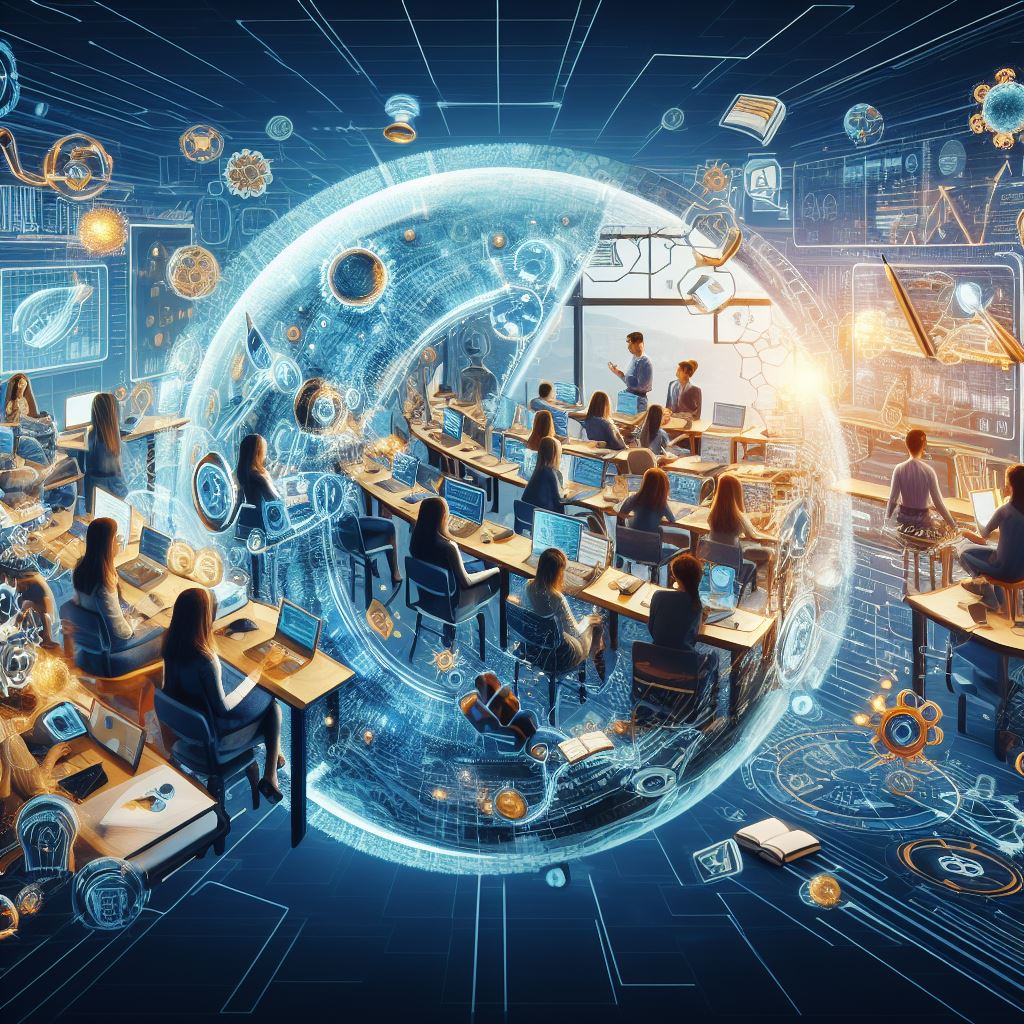
Navigating the Horizon: The Future of Education
The landscape of education is constantly evolving, shaped by societal, technological, and pedagogical shifts. As the world rapidly advances, the education system finds itself at the brink of monumental transformations. This article delves deep into the heart of what's next, drawing from credible forecasts, innovative case studies, and statistical data, offering a comprehensive view on the future of education.
Future Technological Advancements in Education
Educational Technology: More than Just a Buzzword
Educational technology has always been at the forefront of revolutionizing learning. Let's explore its impending metamorphosis:
-
AI in Education: The role of artificial intelligence in future education cannot be understated. AI systems are anticipated to offer personalized learning pathways, instant feedback mechanisms, and even administrative solutions. According to The Journal of Futures Studies, AI might soon empower educators to identify learning disabilities at early stages and provide tailored interventions.
-
Virtual Learning: With the advent of the global pandemic, the concept of "virtual learning" skyrocketed. The impact of virtual reality on educational experiences promises even deeper immersion, transforming abstract concepts into tangible experiences. Think of students taking a virtual journey inside a cell or walking amidst historical events!
-
Adaptive Learning Platforms: These are AI-driven platforms designed to adjust content in real-time based on a learner’s performance. A case study from EdSurge highlighted how some institutions have already seen promising results in improving student outcomes using adaptive platforms.
Sustainable Practices in Future Education Systems
As the world grapples with environmental challenges, sustainable practices in education systems emerge as a pivotal concern. Educational institutions are expected to emphasize not just ecological sustainability but also socio-economic sustainability, ensuring accessibility and inclusivity.
Innovative Teaching Methods for Future Learning
Traditional pedagogical models are undergoing significant overhauls. The "Future Trends Forum" emphasizes the increasing shift towards:
-
Problem-based Learning (PBL): Where students tackle real-world problems, enhancing their analytical and collaborative skills.
-
Experiential Learning: Learning through experiences, whether simulated or real, adds depth to theoretical knowledge.
-
Flipped Classrooms: A model where students consume content outside of the classroom, freeing classroom time for interactive discussions and problem-solving.
Role of Artificial Intelligence in Future Education
AI's footprint in education is expanding. "Teaching Machines: The History of Personalized Learning" by Audrey Watters gives an insightful narrative on AI’s evolution in education. Here are some implications:
-
Automated Administrative Tasks: From grading to attendance, AI can reduce the administrative burden on educators.
-
Smart Content Creation: Custom textbooks and study guides tailored to individual student needs might soon be a reality.
-
Data-Driven Insights: With AI, educators can receive real-time insights into student performance, enabling timely interventions.
Impact of Virtual Reality on Educational Experiences
Virtual Reality (VR) offers a realm of possibilities:
-
Immersive Learning: Imagine learning history by virtually witnessing crucial events or understanding marine biology by diving deep into the ocean without leaving the classroom. VR makes this possible.
-
Enhanced Engagement: VR can make learning captivating, reducing the traditional distractions faced in a classroom setting.
-
Real-World Skill Training: Medical students can perform surgeries, engineers can test machines, and architects can walk through structures, all virtually.
Ethical, Socio-Economic, and Practical Considerations
While the future looks promising, it's vital to address challenges:
-
Digital Divide: As highlighted in "The Future of Education: Reimagining Our Schools from the Ground Up" by Kieran Egan, there's a pressing need to bridge the digital divide ensuring every student has equal access to technological advancements.
-
Privacy Concerns: With AI and data-driven insights, student data privacy emerges as a paramount concern.
-
Training for Educators: The success of these innovations hinges on adequately trained educators capable of harnessing their potential.
Conclusion: Preparing for a Paradigm Shift
The realm of education stands at the cusp of a revolution. From AI-driven personalized learning experiences to immersive VR classrooms, the future holds immense promise. However, to traverse this new horizon, educators, policy makers, edtech developers, and students must collaborate, ensuring a future that's not just technologically advanced but also ethical, inclusive, and sustainable.
References:
- Future Trends Forum, hosted by Bryan Alexander
- "The Future of Education: Reimagining Our Schools from the Ground Up" by Kieran Egan
- OECD Future of Education and Skills 2030
- New Media Consortium’s Horizon Report
- EdSurge on Future of Learning
- "Teaching Machines: The History of Personalized Learning" by Audrey Watters
- Peer-reviewed articles from "The Journal of Futures Studies," "Technological Forecasting and Social Change," and "Futures."





